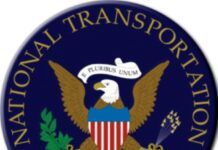In my recent wanderings in the online aviation world, I came across this question in a few different places … if pilots are so scarce, why do airlines still require pilot applicants to have a four-year college degree? Especially since they often don’t seem to care what the degree is in … forestry or engineering or English lit all seem to equally make the cut. Getting that degree requires a substantial investment in time, energy and money. Wouldn’t those resources be better spent on building hours and adding certificates? I asked a few professional pilots for their take on this, and came up with some surprising responses.
A corporate jet pilot told me that in fact, many of the airlines don’t expressly require a degree, though it may be listed as a “preference.” Applicants with military backgrounds or extensive corporate experience or outstanding personal references might wrangle an interview. But having the degree is still considered an asset. If nothing else, it shows that you’ve had the skills and fortitude to set a goal and achieve it, and that you’ve probably learned some important life lessons along the way — how to work well with others, demonstrate leadership and all that stuff. In practice, all other things being equal, an applicant without a degree is going to be less competitive.
An RJ pilot told me another consideration for young folks seeking an aviation career is that it never hurts to have a Plan B. You might find out along the way that a pilot career is not that appealing for you, or that jobs disappear because of changes in the industry. Or you could run into a disqualifying medical issue at some point. You can imagine plenty of scenarios where it might not be a bad idea to have another option. In that case, having some kind of useful college degree in your back pocket is not a bad thing.
A charter pilot and former FAA staffer with a varied career flying all sorts of civilian planes told me even if some of the airlines don’t expressly require a degree, not having one “is just a way to get yourself eliminated.” He agreed with the consensus from my small, casual sample, that if an airline career is your goal, skipping the degree is not a good strategy.
Of course, if four years of school means decades of debt, that’s a tougher equation than if your parents are paying the bill for you. If the airline career works out, it should still prove to be a good investment over time. But is the requirement kind of unfair and unnecessary and maybe even discriminatory? I tend to think it is. But as long as the airlines have enough applicants, they can impose any criteria they like.
In any case, I suspect this current pilot crunch is not going to last too long. Older pilots flying today in two-crew cockpits remember when there was a third chair there, for the flight engineer. Younger pilots flying now are likely going to see the day when there’s just one seat in the cockpit. You won’t need a dog for company — a remotely based second officer will be filling that second slot. As soon as the airlines can show that the remote pilot can safely land a jet if the single pilot on board is incapacitated, we’ll be on the road to single-pilot cockpits. And you know what’s next.


































